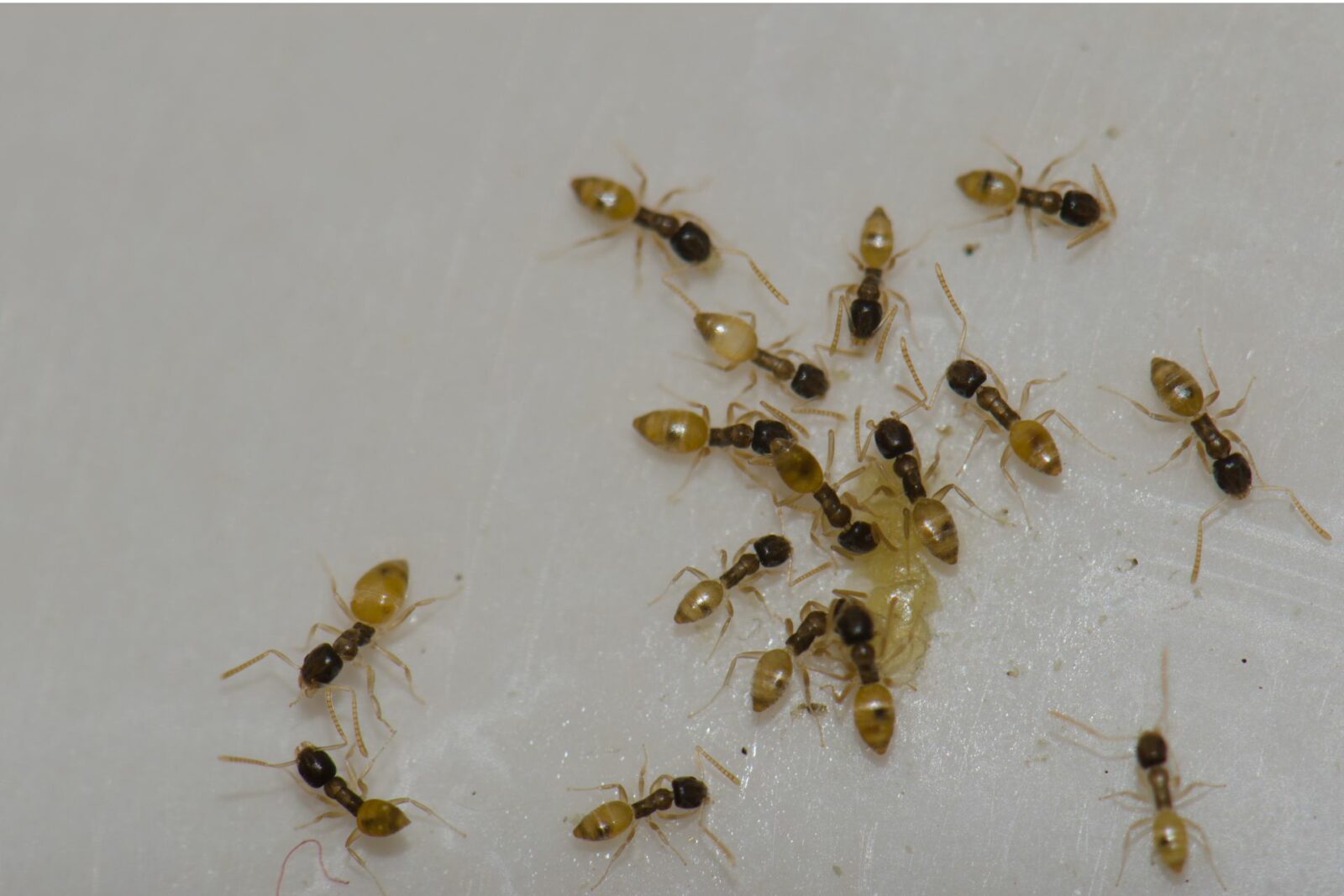Have you ever noticed tiny translucent ants crawling around your kitchen or bathroom that seem almost invisible? You’ve likely got a ghost ant infestation. While ghost ants are generally harmless themselves, they are considered pests in your home. They contaminate food and can attract other pests. In this article, we’ll take a closer look at ghost ants and provide you with some helpful tips for getting rid of them.
What are Ghost Ants?
Ghost ants, also known as black-headed ants or sugar ants, are a tiny species of ants that’s commonly found in tropical regions. Due to their size and pale, almost translucent body, they can be difficult to see, hence their name. As ants, ghost ants invade your home in search of moisture and food.
Signs of a Ghost Ant Infestation
If you suspect that you have ghost ants in your home, there are a few signs to look out for. Here are some of the most common signs of a ghost ant infestation:
Apart from actually seeing a large colony of ghost ants, there are a few signs to look out for. Because Ghost ants are difficult to see in small groups, the beginnings of an infestation can easily be missed. Keep an eye out for the following:
- Small piles of fine dirt and debris. This could indicate an ant nest.
- You notice small holes or cracks along your walls, floors and ceilings. These are often entry points and active paths that the ants take.
- If you do manage to see a small group of ghost ants, there’s a good chance you’re dealing with more ghost ants than you can see. This is especially true if you find ghost ants in your kitchen near exposed food.
How to Get Rid of Ghost Ants
If you’re dealing with a ghost ant infestation, don’t worry – there are several ways to get rid of them. Here are some of the most effective methods:
1. Insecticides
Insecticides are one of the most common and effective solutions to getting rid of ghost ants. The trick is to use the appropriate insecticide that’s formulated specifically for ghost ants. These insecticides come in a spray form or powdered bait form so you’ll have to identify where ghost ants pass through and retreat to know where to apply the insecticide. Look for where the ghost ants most actively pass, also known as the ant trail, and like the insecticide along the trail as well as into any crevices they’re hiding in.
With that said, please note that insecticides are poisonous and can be harmful to humans and pets. Segregate areas with insecticide accordingly as a layer of safety for other members of your household.
2. Home Remedies for Getting Rid of Ghost Ants
If you prefer a more natural approach to pest control, there are several home remedies that can help you get rid of ghost ants. Here are a few options:
- Vinegar: Mix equal parts vinegar and water in a spray bottle and spray the solution directly on the ants or on the areas where they are entering your home. The smell of vinegar can help repel ants and keep them from coming back.
- Borax: Mix equal parts borax and sugar and place the mixture in a shallow dish near where the ants are entering your home. The ants will be attracted to the sugar and will bring the borax back to their nest, which will eventually kill the entire colony.
- Peppermint oil: Mix 10-15 drops of peppermint oil with water and spray the solution around the areas where the ants are entering your home. Ants hate the smell of peppermint and will avoid areas where it has been sprayed.
3. Professional Pest Control
If you’ve tried the above methods and are still dealing with a ghost ant infestation, it may be time to call in the professionals. A pest control company can identify the source of the infestation and provide you with targeted treatments to get rid of the ants once and for all. They may use specialized baits, traps, or sprays that are more effective than over-the-counter products.
While professional pest control can be more expensive than DIY methods, it can be a worthwhile investment if you’re dealing with a severe infestation or if you want to ensure that the ants won’t come back.
Prevention Tips
As the old saying goes, an ounce of prevention is worth a pound of cure. Here are some tips to prevent ghost ants from invading your home in the first place:
1. Keep Your Home Clean and Dry
Ghost ants are attracted to sugary foods and moisture. Regularly clean your home and address leaks and spills immediately. The idea is to maintain a clean and dry home to make it less attractive and hospitable for ghost ants.
2. Seal Up Entry Points
Ghost ants are tiny and can enter your home through even the smallest of cracks and holes. To prevent them from entering, use caulk to seal up any small holes or cracks in walls and floors. Pay particular attention to areas around pipes and electrical outlets, as these are common entry points for ants.
3. Store Food Properly
Exposed sugary food is the main culprit for attracting ghost ants and ants in general. Store food in the fridge and in airtight containers to keep ants at bay.
4. Trim Trees and Shrubs
If you have trees or shrubs near your home, make sure to trim them regularly. Overhanging branches can provide a highway for ants to enter your home, and shrubs near your foundation can provide a hiding place for ants.
5. Use Pest Control Products Preventively
If you live in an area where ghost ants are common, consider using pest control products preventively. This can include using baits and sprays around the perimeter of your home to create a barrier that ants won’t cross. This can be a particularly effective way to prevent ants from entering your home during the rainy season.
Conclusion
Ghost ants may be small and almost invisible, but they can be a big problem if they invade your home. If you’re dealing with a ghost ant infestation, try the methods outlined in this article to get rid of them. If DIY methods don’t work, consider calling in a professional pest control company. And remember, prevention is key – take steps to keep ants from entering your home in the first place, and you’ll be less likely to have to deal with an infestation in the future.








